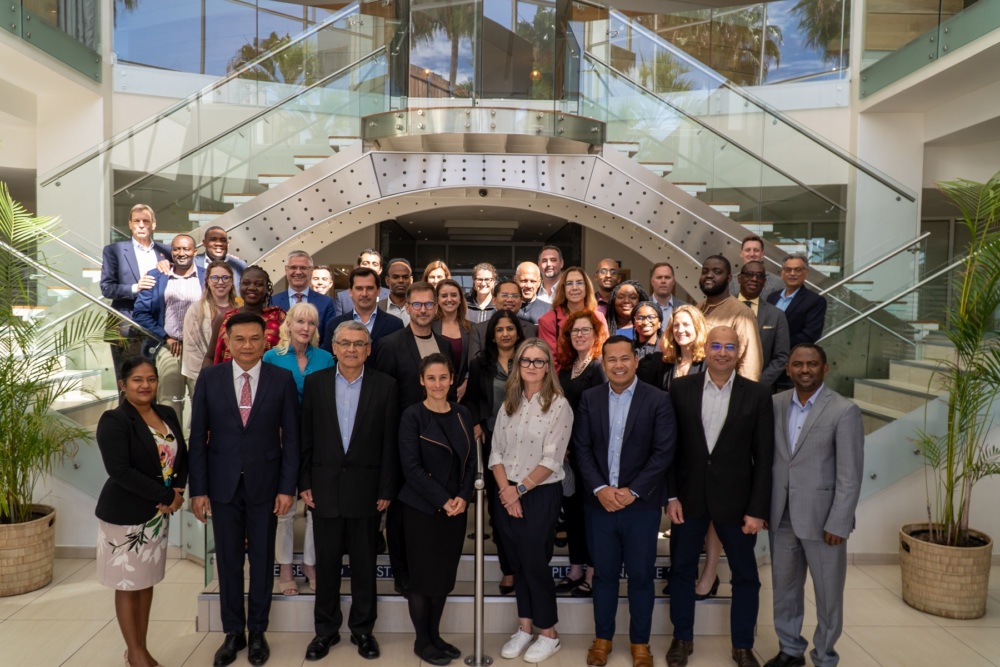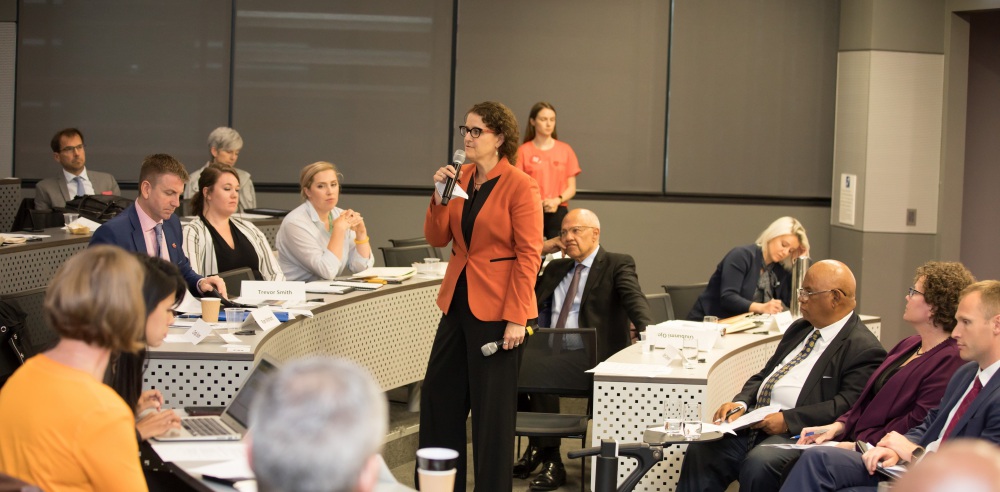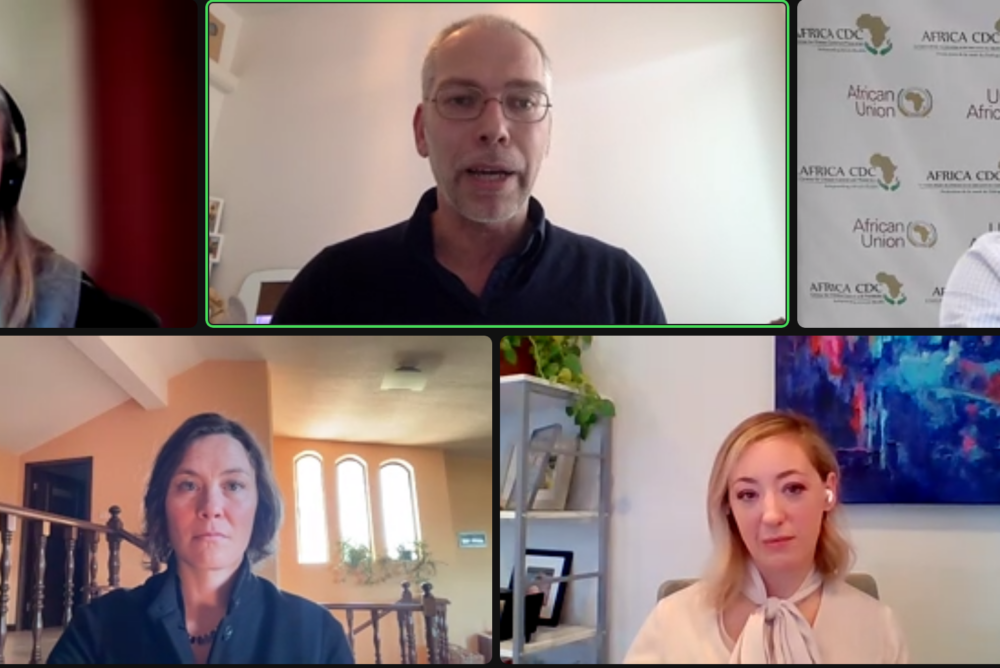NTI’s Global Biological Policy and Programs team (NTI | bio) participated in the first annual Global Health Security (GHS) Conference and an associated Military Health Summit in Sydney, Australia during the week of June 17th. The events drew more than 800 experts and officials from around the world. Vice President Elizabeth Cameron and Senior Program Officer Haley Severance moderated and presented in several sessions and convened a workshop to encourage greater inclusion of biosecurity-related risks into discussions about epidemic and pandemic preparedness.
Cameron led plenary panel discussions to spotlight the lack of innovative financing mechanisms for global health security and to emphasize the need for regional civil-military partnerships on biological event preparedness.
Cameron also presented new recommendations for improving the international response to deliberate biological events, including through the establishment of a standing facilitator within the Office of the United Nations Secretary General. During the upcoming Biological Weapons Convention Meeting of Experts in Geneva and, ideally, the United Nations General Assembly, NTI will continue to socialize this and other recommendations from a tabletop exercise with senior leaders co-convened by NTI during the 2019 Munich Security Conference.
In Sydney, NTI also sponsored a workshop focused on emerging biological risks on the African continent associated with advances in technology. This event featured experts from Africa, Southeast Asia, and North America who discussed current and future accidental and deliberate biological risks. Dr. John Nkengasong, director of the African Centres for Disease Control and Prevention in Addis Ababa and member of the NTI | bio Advisory Group, provided the keynote address. He stressed his personal commitment to the new biosecurity initiative launched by the African Union, an outcome of the NTI Global Biosecurity Dialogue. Severance presented the Global Biosecurity Dialogue as a “game-changing” approach during a session on the role of civil society in global health security.
During a session aimed at improving health security tools, Cameron provided a briefing on the upcoming Global Health Security (GHS) Index and discussed the weighting scheme for Index indicators. This fall, NTI and its partners – the Johns Hopkins Center for Health Security and The Economist Intelligence Unit – will publish the first comprehensive GHS Index, which will identify gaps in global capability to halt and mitigate high-consequence biological events for the 196 States Parties to the International Health Regulations.
Learn more about the work of NTI’s Global Biological Policy and Programs team here.




